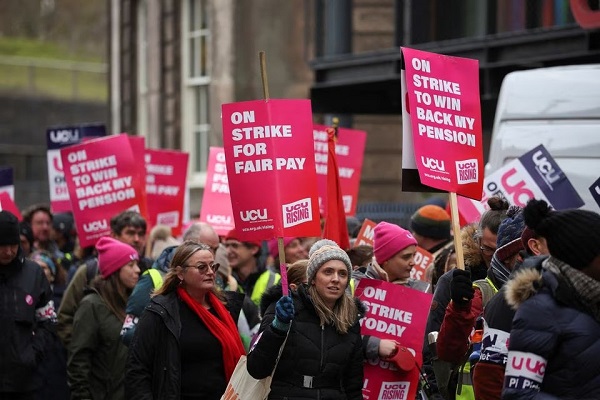Over 70K Staff Of UK's Universities To Strike For 18 Days In Feb, Mar: Union
More than 70,000 employees at 150 universities in the United Kingdom will go on an 18-day strike over pay and attacks on pensions between February and March, University and College Union (UCU) announced on Thursday. Read on for details:

London: More than 70,000 employees at 150 universities in the United Kingdom will go on an 18-day strike over pay and attacks on pensions between February and March, University and College Union (UCU) announced on Thursday.
"UCU announced that more than 70,000 staff at 150 universities across the UK will strike for 18 days between February and March in disputes over pay, conditions and attacks on pensions," UCU said on the website, adding that "the union is demanding a meaningful pay rise to deal with the cost-of-living crisis as well as action to end the use of insecure contracts."
Also Read |
208 women MPs, a proud record for UK Parliament
The union noted that the Universities and Colleges Employers Association (UCEA) offered UCU to raise employees' pay between 4% and 5% on Wednesday, but the union said that the offer was "not enough." The union is also demanding "employers revoke the cuts and restore benefits."
"The clock is now ticking for the sector to produce a deal or be hit with widespread disruption. University staff dedicate their lives to education and they want to get back to work, but that will only happen if university vice-chancellors use the vast wealth of the sector to address over a decade of falling pay, rampant insecure employment practices and devastating pension cuts. The choice is theirs," UCU general secretary Jo Grady was quoted in the statement.
Also Read |
Prince Charles, Duchess pay tributes at Amar Jawan Jyoti
According to the announcement, the precise dates of the strike action will be provided next week.
Worker strikes have become more frequent in the UK, in parallel with soaring inflation, which reached a record 11.1% in October. Ex-Prime Minister Liz Truss' failure to curb growing prices and eliminate the budget deficit caused her to resign last month. Her successor Rishi Sunak's government has presented a mid-term financial plan and is counting on tax hikes and cuts in public spending to stabilize the economy. (UNI)
 Dynamite News
Dynamite News 